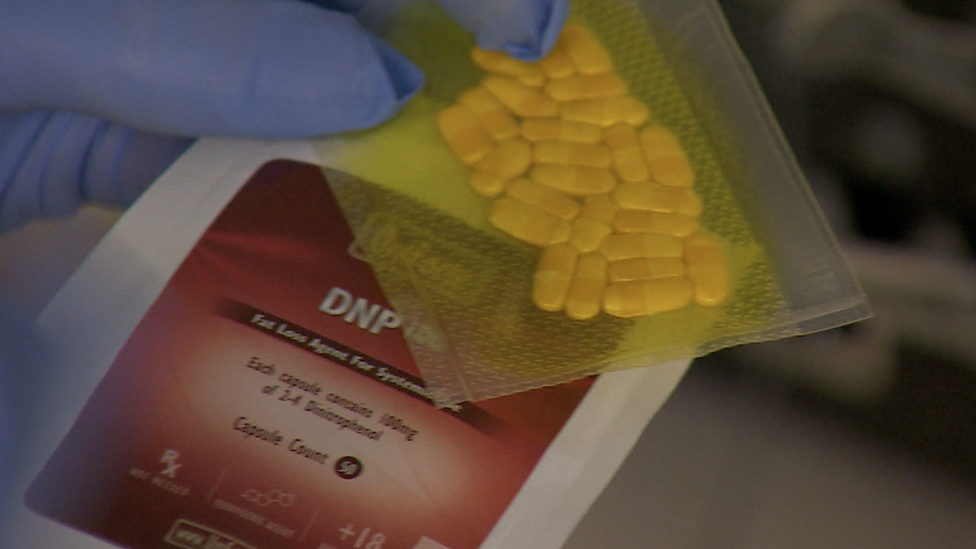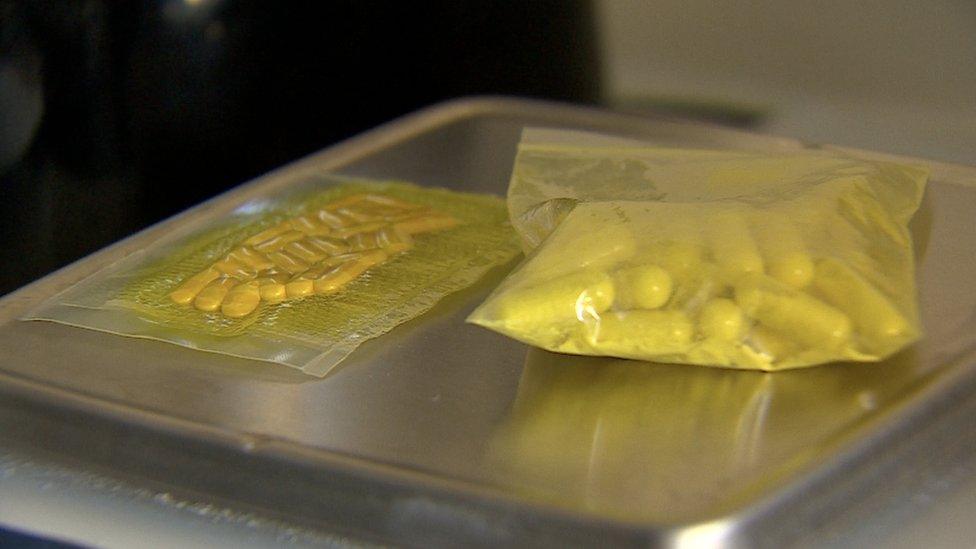DNP: Bodybuilding substance death prompts Northamptonshire coroner warning
- Published

Jack Knapman, 21, died after taking DNP for bodybuilding and weight loss
A coroner has issued a warning after a bodybuilder took an overdose of a toxic substance used for weight loss.
Jack Knapman, 21, took "a substantial quantity" of DNP (2,4-Dinitrophenol) in 2018, causing severe toxicity and cardiac arrest.
The drug should "never be used for human consumption", a Northamptonshire coroner said.
He warned a lack of clarity over responsibility for monitoring sales of DNP would "clearly put lives at risk".
DNP has a variety of industrial uses, including as a photographic chemical, a fertilizer and in the manufacture of dyes and explosives.
It causes weight loss by burning fat and carbohydrates, in turn causing energy to be converted into heat. Those who have taken the drug experience an increase in temperature and metabolic rate, which can prove fatal.
'Lack of clarity'
In a Prevention of Future Deaths Report, external (PFDR), assistant coroner for Northamptonshire, Philip Barlow, said he was aware of a number of deaths associated with the use of the substance.
The Food Standards Agency told the inquest it had become aware of Mr Knapman's purchase of DNP online and sent him a letter warning of the risks, but there had been a delay in sending it.
Since Mr Knapman's death, the Home Office said it planned to bring in legislation next year that would add DNP to the list of regulated poisons, meaning it could only legally be sold by a pharmacist to someone with an Explosives Precursors and Poisons (EPP) licence, "for a legitimate purpose only".

DNP has a variety of industrial uses and should never be used for human consumption, says the Food Standards Agency
It would then be illegal to sell DNP to anyone without a licence, meaning sales and possession of the chemical would be punishable by up to two years in prison.
However, the coroner said he had concerns that it was unclear who would have responsibility for monitoring and preventing its sale for human consumption.
He said that "lack of clarity" would "clearly put lives at risk", because it could "delay an effective response" to online advertising.
'DNP can and does kill'
The assistant coroner noted that since Mr Knapman's death, the National Food Crime Unit (NFCU) had new policies leading to "more effective action and timescales".
In a statement, the Food Standards Agency said DNP "should not be consumed under any circumstances" because it "can and does kill".
The unlawful sale of DNP "remains one of the NFCU's main priorities", the agency said.
It added: "A further investigation into the supply of DNP for human consumption is currently ongoing."
Enforcement under new legislation, if approved, would be shared by the Food Standards Agency and police, the Home Office said.

Find BBC News: East of England on Facebook, external, Instagram, external and Twitter, external. If you have a story suggestion email eastofenglandnews@bbc.co.uk, external
Related topics
- Published27 June 2018

- Published3 February 2022

- Published22 September 2020
